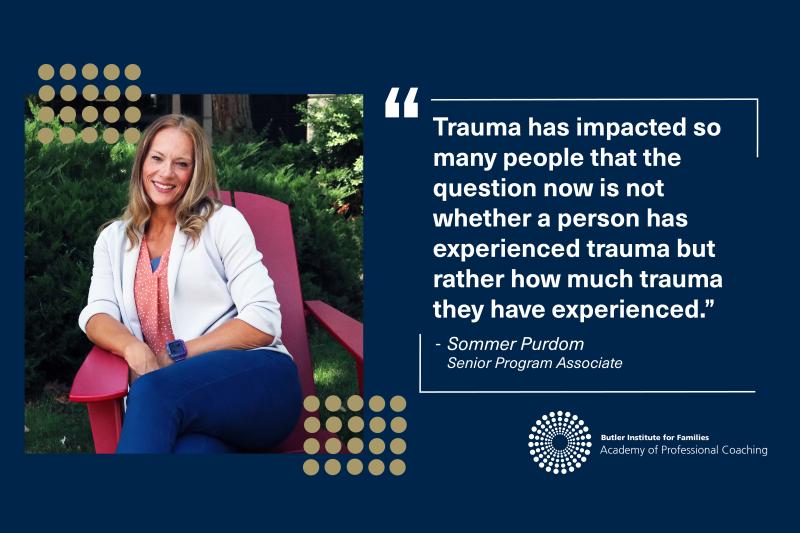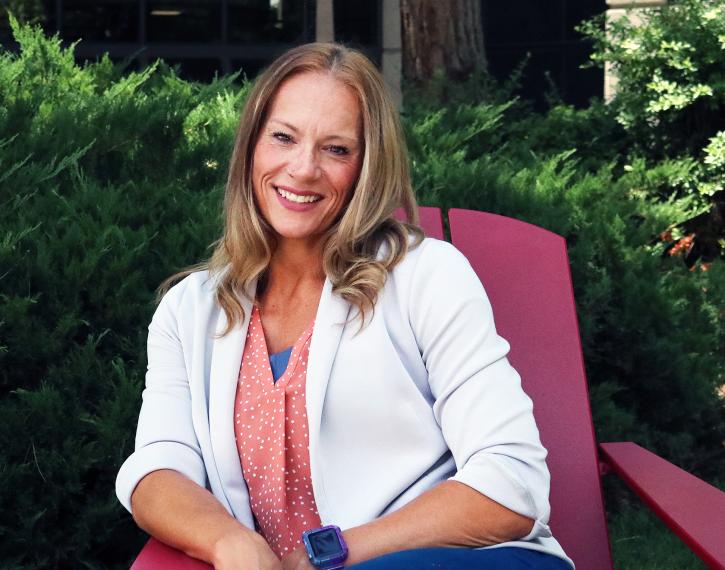According to the Center for Diseases Control and Prevention, one in six adults have experienced four or more traumatic experiences in their lives. Trauma impacts an individual’s way of being, such as their physical and mental health, cognition, behavior, emotions, brain development, relationships, and emotional intelligence. Trauma has impacted so many people that the question now is not whether a person has experienced trauma but rather how much trauma they have experienced.
Individuals who have faced adversity are different in the way they think, act, feel, and express themselves. To connect and form a coaching alliance based upon mutual trust, the coaching approach must also differ with these individuals. While all professional coaches can support others through questions and personalized approaches to growth, trauma-informed coaching is a specialized way to connect to clients and help them make decisions based on resiliency.
Trauma-informed coaching means coaching with the knowledge that most people I come in contact with have been impacted by an adverse experience at some point in their lives. Keeping that understanding in mind helps me partner with them in a thought-provoking, creative, client-driven way that inspires them to maximize their personal and professional growth. As a colleague at Butler once said, being trauma-informed is not something a coach can just pick up and put on whenever they feel it applies; it is a way of being. Trauma-informed coaching is a way of understanding the presence of past trauma, its current effects on a client, and how to use the client’s resiliency to guide them along their path toward solution-focused growth.
Trauma has had a profound and personal impact on my own life. My childhood adversities impacted me into adulthood, and it was no surprise when I began my professional coaching journey that I immediately gravitated toward coaching from a trauma-informed perspective. As a professional coach, I want to be equipped to meet everyone where they are. Recognizing that most of the unique individuals I work with have potentially been affected by trauma allows me to create a safe and trusting environment and hold a better understanding of clients’ behaviors and challenges as well as their remarkable ability to overcome, adapt, and transform through long-lasting sustainable change.
By understanding the different types of trauma and their effect on individuals, I can take a trauma-informed coaching approach that focuses on the physical, emotional, psychological, and cultural safety of each client. This approach creates a more inclusive space that allows for diverse perspectives and everyone’s voice to be heard. Further, meeting people where they are in a safe space can empower individuals by giving choice and agency in each interaction.
In my early experiences as a coach, I met with an individual multiple times. At each session she informed me that she had no idea what she really expected from the coaching experience, and I noticed that she exhibited no internal drive for growth and transformation. She had experienced generational racism as an adolescent and even as a young adult first responder. When we began to identify those traumatic experiences for what they were and their current effect on our coaching relationship, I watched this client blossom. She began to identify more self-awareness and started thinking about how she could have a positive impact on others. Her confidence increased, and her passion to persevere fueled her intrinsic motivation and improved her self-regulation and social skills. We quickly moved on to be able to identify goals for growth and instill self-confidence that she had the skillset needed to meet each personal goal she had set for herself.
As this example illustrates, coaching from a trauma-informed approach provides individuals with a greater awareness of their personal strengths and individual worth. It can open the door to new possibilities; improve relationships; increase an appreciation for life; and support physical, emotional, and psychological growth.
I love walking with others along the path of discovering one’s self-worth and personal and professional superpowers. Since becoming a professional coach, I’ve grown along with my clients as we identify and embrace the differences everyone brings to the coaching relationship. Partnering with each client, we work to rediscover their confidence; hone their ability to adapt well to change, manage conflict, and grow during difficult situations; and instill a passion for achieving their goals.

